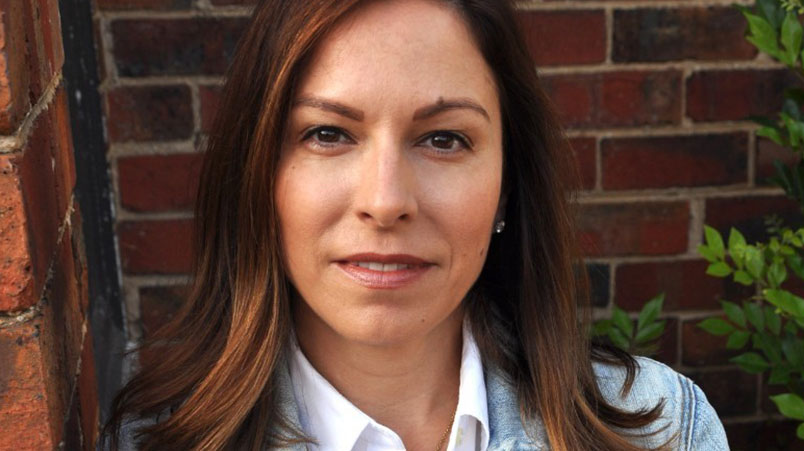Snooze marketing boss on lagging in CRM and second stage customer acquisition... 'just don't tell 40 Winks'

Snooze's Doni Davies: "We're taking this opportunity to get consumers in our stores and shop online... but we're not really nurturing those consumers."
After one of its best years in sales, marketing manager for bedding brand Snooze, Doni Davies, says the brand has overslept on its CRM and customer acquisition strategy. Projecting a sector-wide decline as consumer dollars shift back into broader leisure and tourism, Snooze is doubling down on customer loyalty and repeat spenders.
What you need to know:
- Retail brand Snooze has admitted it's been caught napping when it comes to its CRM and customer acquisition strategy.
- Marketing lead Doni Davies said the brand will increase its martech investment to combat an inevitable drop in sales following a Covid boom.
- Meanwhile, it needs a smarter approach to capture and convert repeat buyers.
Bedding down digital
The Covid-fueled home retail boom hasn't come without its challenges, leaving many retailers now trying to overhaul martech stacks coaxed through the pandemic but now showing serious warning signs, according to marketing lead for bedding brand Snooze, Doni Davies.
Top of her list is CRM capability.
Part of the global Steinhoff Group, with more than 85 Australian Snooze stores, both physical and ecommerce sales have been exceptional over the last year, but the marketing GM is now wary of an incoming drop off as people began to spend in recovering sectors, such as travel and tourism.
"We saw our own Covid effect, which was this 'cocooning' – being at home, renovating, updating. I would guess everyone saw a mattress on the sidewalk at some point, maybe two or three, and that was something we benefitted from as we went through Covid," Davies told an event hosted by Starcom.
"The issue is that this amazing opportunity has come and we're having all this traffic in the stores, amazing sales but what going to happen is borders will open, people will travel and money will move into different areas. That's why we need to be prepared to take market share now."
However, Davies acknowledged that while the brand had racked up a large number of first time customers, mainly purchasing one off products such as mattresses, it was lagging in capturing those consumers for "second transactions".
She said Snooze has only just begun to invest into its CRM capabilities.
"Don't tell 40 Winks but I wish we’d started it a year earlier, because it's one of those things where we're now taking this opportunity to get consumers in our stores and shop online – and we're not really nurturing those consumers," Davies said.
"We're not [managing] them through a customer journey and while we do have tools and we do the best we can, we really need to take advantage of the technology that's out there and start ramping that up so that we talk about second purchases and the easy [customer] acquisition."
Davies said while Snooze was investing in brand, it still needs to strike the balance between investing in above the line campaigns and a reliable martech and CX strategy.
"You can't go out and say 'here's our brand work now like us'. We need to build out those relationships and [understand] what that partnership looks like beyond that brand work. But we can't do that without a communication tool," Davies said.
"The pandemic's been a great time to stop, look and figure out what you need to be better at so that when [the market] does settle down and if sales do start to decrease, we capture those consumers and take market share. This has been our journey has been so far – and it's not quite done yet."
Drive-by remarks
Joining Davies on the panel was Fiat Chrysler marketing boss Tom Noble, who has also used the pandemic to justify tech investment.
Given Jeep's longstanding reputational problems, he suggested "2020 was a year to have a pandemic" for some businesses.
"We had some major brand issues that we needed to repair and we were able to do that, in fact sales for Jeep were up 6% for the year as a result." (VFACTS reports a 4.1% increase for Jeep sales in calendar 2020).
"What was more encouraging was 65% of people that walked into a dealership we were converting into a sale, where it was more like 45% prior to Covid," said Noble.
He thinks this is because the brand had more time to focus on its digital channels, giving customers greater insights into the range of vehicles, meaning many came into dealerships with a deeper product understanding and stronger purchase intent.
"Dealers realised that they had to be better in the digital space and meet people wherever they want to be, whether it’s through VR or drop off test drives," Noble said.
"If we hadn’t had that situation last year, there is no way we would have ever have gotten to do what we did – the approach to content, virtual walkthroughs of cars or online meet and greets."
Noble said the results are already speaking for themselves, claiming sales are up 61% for the first quarter of 2021, compared to Q4 2020.
